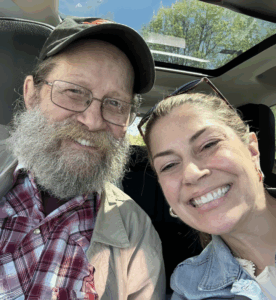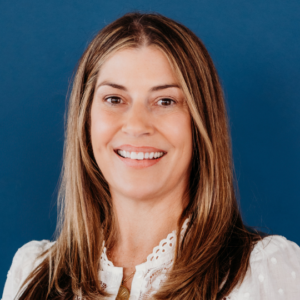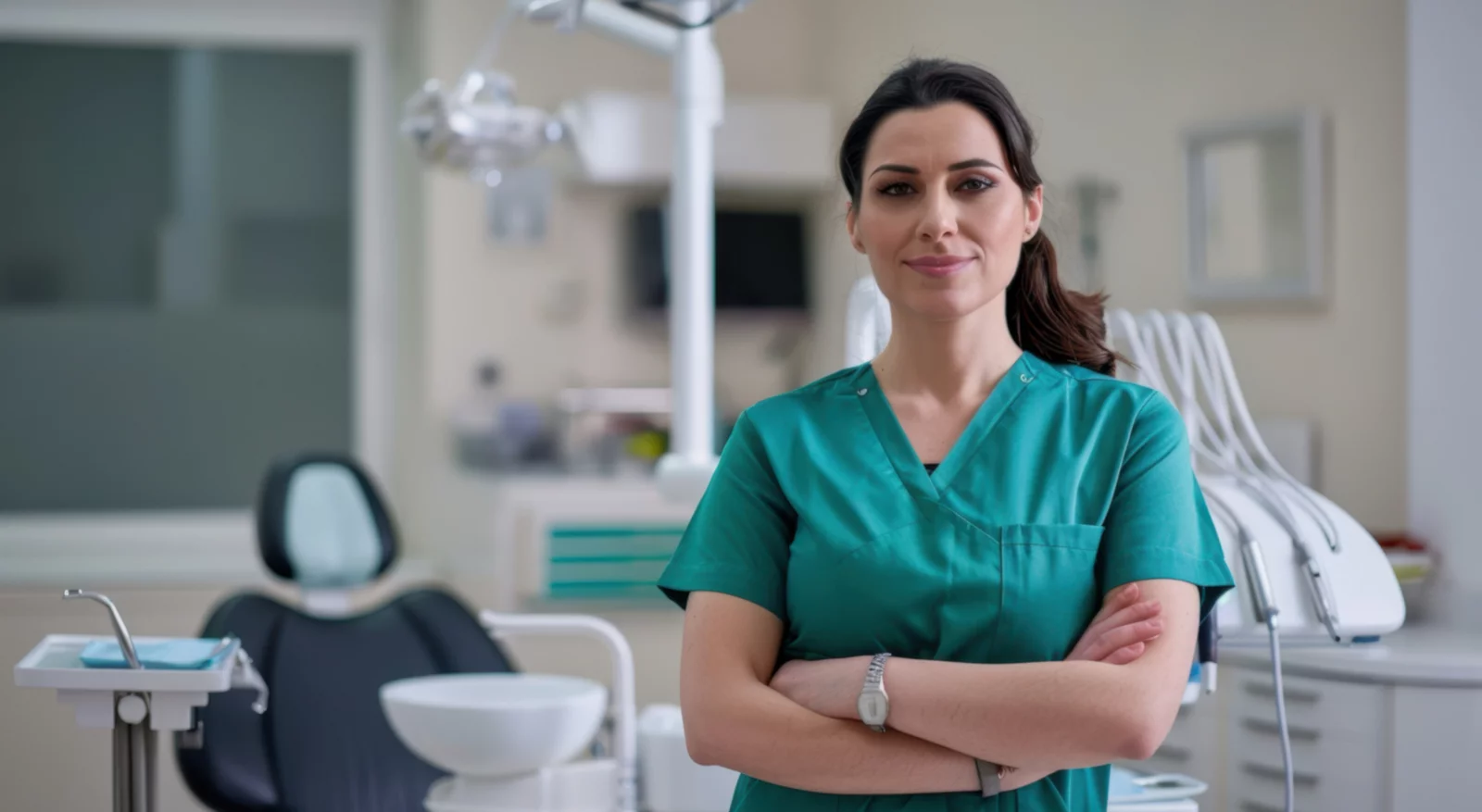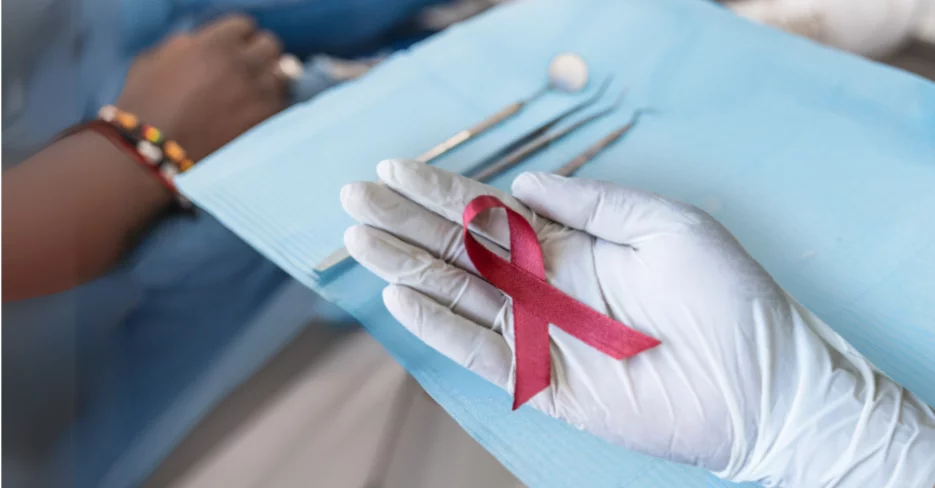By Summer McMenamin, RDH, MS, FADHA, MCHES
August 28, 2025
My father grew up in Blades, Delaware—a small, working-class town that didn’t receive community water fluoridation until 1998. By then, he was already in his forties. Like many from similar communities, he had periodontal disease and missing teeth, becoming edentulous more than a decade before his cancer diagnosis. That fact alone should have been a red flag—a signal that preventive systems had failed him long before any catastrophic illness appeared.

The author and her father, Gerald “Skeeter” McLaughlin, in happier times.
For nearly his entire life, he worked in construction—hanging drywall, sanding and painting. No masks. No warnings. Just years of inhaling dust, chemicals, and who knows what else. He also smoked from his teenage years until the day he was diagnosed. When we learned he had both small cell lung cancer and HPV-related tonsillar cancer, it felt like the inevitable result of a life filled with unchecked exposures and unaddressed risks.
But that wasn’t the only failure.
Already nutritionally vulnerable due to his edentulism, my father faced additional challenges when cancer treatment began. Yet in the many medical appointments that followed his dual cancer diagnoses, oral health was never part of the conversation. As his daughter—and as a dental hygienist with years of clinical and public health experience—I asked questions. I asked whether dry mouth would affect his ability to eat. I asked if a dental consult was recommended. I asked about mucositis, nutrition, and medications that could further compromise his already fragile oral environment.
The moment it became clear that I was “just” a dental hygienist, I felt the shift. The nods became shorter. The room grew quieter. My knowledge—my professional insights—were quietly dismissed.
That moment wasn’t just frustrating. It was heartbreaking.
I wasn’t asking theoretical questions—I was identifying real gaps in his care. I knew what was missing, and I knew that by ignoring his oral health, they were missing the bigger picture of his overall well-being.
Dental hygienists are often the first point of preventive care. We educate, we screen, we advocate. We recognize the signs that connect oral health to systemic illness. We are not ancillary—we are essential.
And yet, even in a room full of healthcare providers, I was invisible.
My father’s story is not unique. He lived without access to fluoridated water or consistent preventive dental care, and lacked workplace protections that might have prevented long-term harm. When cancer struck, the healthcare system treated his mouth as if it didn’t matter.
But it did matter.
His edentulism impacted his nutrition. His cancer treatment was more complicated because of it. And his quality of life—especially at the end—was diminished by a system that continues to treat oral health as optional.
We cannot continue separating dental care from healthcare. Oral health is healthcare.
And dental hygienists are not optional. We are providers, educators, and advocates who deserve a seat at the table—not just for our profession, but for the patients and families we serve.
This story is deeply personal, but it is also a call to action.
If we want to improve outcomes, expand access, and honor dignity in care, we must integrate oral health into our policies, payment systems, and the very framework of how we define healthcare.
Because the mouth has never been separate from the body.
And no one should ever be “just” a dental hygienist to know that.
____________________________________
 Summer McMenamin, RDH, MS, FADHA, MCHES, is a dedicated dental hygienist and advocate committed to expanding access to oral healthcare. With extensive clinical experience in both private practice and public health settings, she has worked to bridge gaps in underserved communities through education, outreach and policy advocacy. Passionate about elevating the role of dental hygienists, Summer actively engages in efforts to promote legislative advancements, interdisciplinary collaboration and increased access to care for vulnerable populations. She is a longtime member and a Professional Fellow of the ADHA.
Summer McMenamin, RDH, MS, FADHA, MCHES, is a dedicated dental hygienist and advocate committed to expanding access to oral healthcare. With extensive clinical experience in both private practice and public health settings, she has worked to bridge gaps in underserved communities through education, outreach and policy advocacy. Passionate about elevating the role of dental hygienists, Summer actively engages in efforts to promote legislative advancements, interdisciplinary collaboration and increased access to care for vulnerable populations. She is a longtime member and a Professional Fellow of the ADHA.




